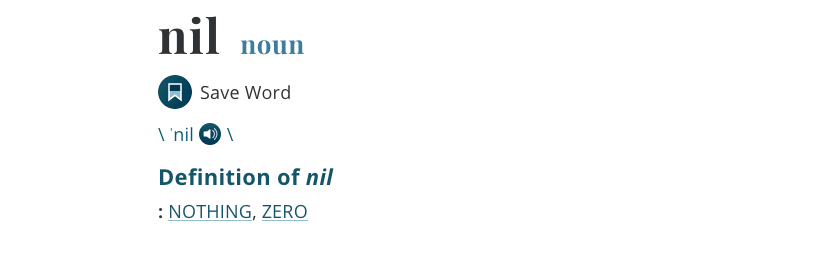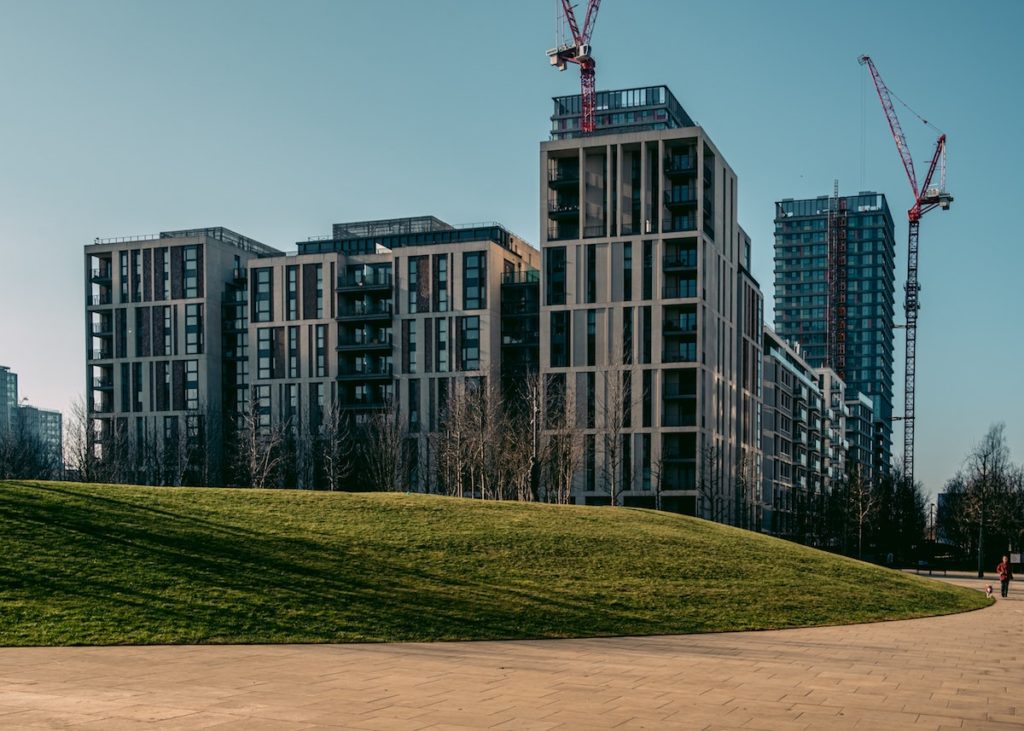What impact has the building safety crisis had on valuation of shared ownership homes? Chris Baker, Owner of McDowalls Surveyors, explains key issues – including nil valuation – in this Q&A.

How do RICS valuers value homes?
Valuers assess market value. They work to a definition published by the Royal Institution of Chartered Surveyors (RICS), the governing body for valuation surveyors.
“The estimated amount for which an asset or liability should exchange on the valuation date between a willing buyer and a willing seller in an arm’s length transaction after proper marketing where the parties had each acted knowledgeably, prudently and without compulsion”.
RICS: https://www.rics.org/globalassets/rics-website/media/knowledge/research/insights/valuation-and-sale-price-march-2019-rics.pdf
There are a number of different methodologies that could be used to arrive at the same market value. In my view, the best quality valuation starts with a site visit. But that might not always be possible. Valuers also do desktop valuations. For example, they can assess market evidence relating to previous sold prices for that property, and/or for comparable local properties. Historical sold prices are adjusted to take account of property market movements in the meantime, and any significant differences between otherwise comparable properties.
How does the building safety crisis affect RICS valuations?
RICS valuations should be objective, evidence-based and verifiable. But the building safety crisis creates unprecedented uncertainty and risk. Any increase in uncertainty inevitably leads to more reliance on an individual surveyors’ professional judgement, and therefore increased subjectivity.
Large variances between valuations can arise because valuers are increasingly being asked to provide an opinion on something that is an unknown, in a rapidly changing environment. If you’re valuing a home affected by building safety issues but the vendor nor purchaser do not know the timing and cost of remedial works, and the housing association doesn’t know, and Homes England doesn’t know, how is the valuer supposed to know!
How is a valuer going to determine whether they should apply a £10,000 discount, or a £30,000 discount, or a £150,000 discount on the remediated value? Valuers can’t get it right every time. We’re only human! But a good firm should be prepared to do a review of any valuation, and be prepared to alter their opinion if there’s evidence to justify it.
Many shared owners in homes with defective cladding, or other building safety issues, have been shocked to discover that their homes are now valued at zero. Could you explain nil valuations?
One of the common misconceptions about a nil (or zero) valuation is that it means the property has no market value. That’s not true. What a nil valuation says is that the property does not, at the time of the valuation, provide suitable security to meet the lending criteria of a particular mortgage lender on the date of that valuation.

The terminology is a problem. A ‘nil’ valuation can lead people to believe that their property asset is worthless, and that they’ve lost everything they’ve invested in their home. If the message was: “Your property doesn’t provide adequate security for mortgage lending at this time” it might be clearer to shared owners, and to everyone involved.
What determines whether a home receives a nil valuation?
RICS valuers conduct valuations largely for mortgage purposes. (Although my firm has also carried out a very small number of valuations for shared ownership cash staircasing transactions). Each mortgage lender imposes their own policy requirements, regardless of which valuation firm is used. But different mortgage companies have different risk tolerances for matters including defective cladding, alarm systems, and EWS1 forms. That could result in a nil valuation for one mortgage lender, but a different valuation of the same home for a different lender.
EWS1
A key issue for valuation purposes is whether the building complies with current fire safety regulations, including the external wall system (EWS). An EWS1 form certifies that the external wall cladding system has been assessed by someone who is suitably qualified to do so.
However, implementation of the EWS process has brought other problems to the fore. No-one wants to see a single life lost to fire. But a previous Government u-turn on EWS1 to include all buildings captured too many buildings. There simply aren’t enough people qualified to sign off EWS1 forms. So something that was originally intended to help shared owners and leaseholders ended up hindering them. We need a more targeted approach to risk.
What’s the relationship between a nil valuation and EWS1?
Government advice is currently that lenders shouldn’t require an EWS1 for buildings under 18m. Shared owners and leaseholders hear an announcement from Government on EWS1 and they quite rightly expect things to change in respect of nil valuations. But RICS aren’t ready to change their advice yet. They need to complete their own consultation.
The Government can come out with a u-turn or a change in policy quite quickly. However, it takes the industry longer to react. We can’t just put the brakes on something that’s been in place for months, or years. There would be challenging implications for transactions that are already in progress.
Valuation surveyors are accountable to RICS. And we’re accountable to the mortgage lender who requires advice about a property’s value as security for a mortgage loan. But we’re not directly accountable to Government. So, until RICS and lenders change their policies, valuers are going to be left in a position where we’re not able to say we don’t need an EWS1 just yet. We can’t simply take unilateral decisions disregarding RICS and lenders.
The EWS1 situation is a temporary situation. It’s not going to be there for 20 years; maybe 5 years, 10 years, something along those lines.
Is anyone buying flats with building safety issues?
Imagine yourself in the position of a buyer… If a flat has a known building safety defect, would you buy that property? The answer to that question depends partly on your assessment of the risk, your own financial position, and how long a view you’re prepared – or able – to take. Is the buyer a shared owner meeting affordability criteria? Someone purchasing on the open market with options either to live in the flat or to rent it out? Or someone buying it as a long-term investment for a capital return as well as rental income?

There’s a market out there for buildings with defective cladding. Some buyers are paying cash at 60%-70% of the remediated value of the building. They’re taking a risk they won’t have to fund remedial works. Or there’s enough profit built in for them to feel comfortable with that risk.
Homes England recently updated their Help to Buy guidance. They state that valuers must “take into consideration both the existence of any external cladding and the required documents and their impacts on the market value of the property”. Is there any similar Homes England guidance for shared ownership?
The Homes England definition of ‘market value’ in their Help to Buy guidance notes is, it appears in their latest guidance (published 4 August 2021), proposing a different approach to the RICS definition. But RICS valuers don’t take advice directly from Homes England. They’re guided by the law and by RICS. The RICS definition of market value hasn’t changed. And RICS advice to take uncertainty into account hasn’t changed either.
There are two approaches valuers can take to valuing shared ownership homes. Assuming compliancy for fire safety gets you to one value. If an EWS1 states the building needs remedial work and the costs haven’t yet been determined, the RICS value will be lower. That’s because it takes account of a higher level of risk, both in terms of unknown future costs and also who will bear those costs.
Should a valuer assume that the shared owner will pay remediation costs? Or that the Building Safety Fund will pick up the tab? If there’s no charge to the shared owner, should you still apply a discount because there’s going to be a period of time when it’s difficult to sell because remedial works are in progress? It’s complicated! Also, shared owners will want a low valuation – assuming a worst case building safety scenario – for staircasing or lease extension purposes, but would probably prefer a higher valuation for selling on.
Nil valuation doesn’t apply for staircasing and lease extension. Why not?
Any property always has a market value. Nil valuations arise from mortgage companies’ policies, and reflect potential risks of lending finance. But staircasing and lease extension transactions don’t create additional risks for mortgage companies so don’t often result in nil valuations.
Can a nil valuation be challenged?
Anyone who’s had a recent nil valuation for a mortgage application is unlikely to get a different valuation unless something changes in the background, If a shared owner or leaseholder went to six different valuation firms – all taking instructions from the same lender – they’d almost certainly end up with the same nil valuation result.
But, if a buyer changed their lender, they might find that mortgage lender had different criteria. So they could end up with a different valuation allowing them to borrow money on that property. Or if someone’s financial position improved, and they could afford to decrease the amount they needed to borrow, that could reduce overall lending risk, and consequently change the valuation.
What about other valuations?
If a shared owner isn’t happy with a valuation for a resale or staircasing transaction, the first step is to ask the firm to review their valuation. It’s important to provide evidence to support a different valuation. For example, sales prices of recent resales not yet listed with Land Registry; or additional information about the property; say, lease length, car parking allocation, improvements, and so on. If new information related to building safety – such as a bill or an estimate for remedial works – becomes available it’s reasonable to ask the surveying firm to take that into account.
The next step is to submit a complaint to the housing association. In this case, it might be helpful to obtain a valuation from a different firm as evidence. The District Valuer is the final arbiter for valuation disputes, but that’s a slow and laborious process.
Premiums for statutory lease extensions are negotiated between the housing association’s valuer and the leaseholder’s own valuer. The opening offer by each valuer won’t be the amount either expects to end up as the agreed premium. But housing associations aren’t a typical commercial landlord. It’s not about achieving the highest possible premium in each case. Just whether any proposed premium is a reasonable premium to accept
Voluntary lease extension policies vary across housing associations. Some mirror the statutory terms; some are more generous; and others less so. There is a lot of work going on behind the scenes to make the lease extension process more transparent and beneficial to lessees. The leasehold world is changing. It’s the case that changes take time and policies change.
What does the future hold for shared owners in homes with building safety issues?
Shared owners aren’t currently protected from building safety remediation costs. Housing associations don’t want to put huge bills in the way of shared owners. But, as things stand, the system doesn’t provide many options. It’s not fair that any shared owner or leaseholder should end up financially trapped. Unfortunately, some shared owners may lose their homes before the building safety crisis is resolved.
However, there’s a huge amount of work going on behind the scenes at housing associations to seek ways to remediate buildings via National House Building Council (NHBC) guarantees, or developers, contractors, and so on.
If we look forward ten years down the line, I think – I hope – what will happen is that a blended approach to cost recovery will become the norm. Some money will come from the Building Safety Fund; some money will come from developers; some money will come from housing associations; and some money will come from the builders who built the properties in the first place. And I suspect there will be some money coming from shared owners and leaseholders too.
Featured image: Steve Ou, Unsplash
Shared Ownership Resources continues to exist thanks to the generosity of supporters.
If you found this content useful, please consider making a donation. Many thanks!

As a shared owner, not being able to get a valuation in order to make a sale is concerning, but what’s more concerning is the ability of the same surveyor to give a valuation if you want to staircase.
Will keep following this site for any changes in the impact on shared owners.
Thanks for your comment. In a recent ‘My SO Home’ feature Mary (not her real name) says: “…when I approached the housing association surveyors at the beginning of 2021, they refused to do a valuation on the flat, due to the cladding and fire safety issues. I thought the only silver lining of the fire safety problems for a shared owner staircasing would be that shared owners could get a discount on the flat price, as this is the time when prices should go DOWN, which is advantageous for a buyer”. (Link below).
It would be interesting to hear from more shared owners about their experience of obtaining (or not!) valuations for staircasing purposes, and to know what assumptions have been applied in arriving at a market value (where applicable).
https://www.sharedownershipresources.org/my_so_home/no-15-shared-ownership-downsides/
That was a comprehensive but throughly depressing read.
“If we look forward ten years down the line”
“The EWS1 situation is a temporary situation. It’s not going to be there for 20 years; maybe 5 years, 10 years, something along those lines.”
This is the problem – the government, the industry, developers, HA’s and people who invest in property are seeing this as a short term problem in the long term world of property. Where 5- 20 years is nothing.
5-20 years is everything to a normal person.
Not able to upgrade and get extra rooms to raise children in; not able to move cities for work or family issues; not able to do anything for 5-20 years, and yet it’s phrased back to us like we should be thankful and just get on with it.
It’s an absolute disgrace.
Thanks for your comment, Aubrey. I couldn’t agree more. The best interests of first-time buyers, home owners, shared owners and leaseholders do not appear to be the primary concern in development and implementation of housing policy.
A recent feature – Schrödinger’s Flat & the Building Safety Crisis – makes some practical recommendations as to how housing associations could better support shared owners (and others) living in flats affected by building safety issues. Will they act on any of those recommendations?
https://www.sharedownershipresources.org/need-to-know/shared-ownership-and-the-building-safety-scandal/
I recently (late August 2022) paid off my shared equity mortgage early, and was contacted by an aggressive Taylor Wimpey to say I had to pay the equity share back immediately. I contacted the HCA (who were more cool about it) and just told me to follow the usual redemption process. However, no valuation could be obtain (3 different RICS surveyors) due to the fire cladding……that Taylor Wimpey has been promising to address for the last year 18 months. So having told HCA can’t get a valuation, they said they would get back to me. A month later, I get an email from Target / HCA saying that as they can not get an agreement with RICS on doing valuations on such properties, I can not pay back the equity! In my view, zero valuation should mean I should be able to redeem my equity at the value of the initial loan, but fat chance of that! Is there a way I can force an evaluation for the redemption, or do I simply have to wait until the HCA find a resolution?
Thanks for your comment, Jay. I’m sorry to hear about the issues you are facing. The Taylor Wimpey shared equity scheme is outside the subject matter of this site (i.e.. shared ownership) so, unfortunately, I can’t offer any specific information or advice.
The End Our Cladding Scandal website has a list of organisations which offer financial advice and support: https://endourcladdingscandal.org/get-support/financial-advice-support/.
You could also try Leasehold Advisory Services: https://clients.lease-advice.org/#/.
I wish you luck with resolving your situation.